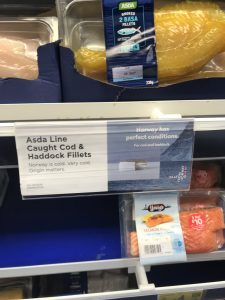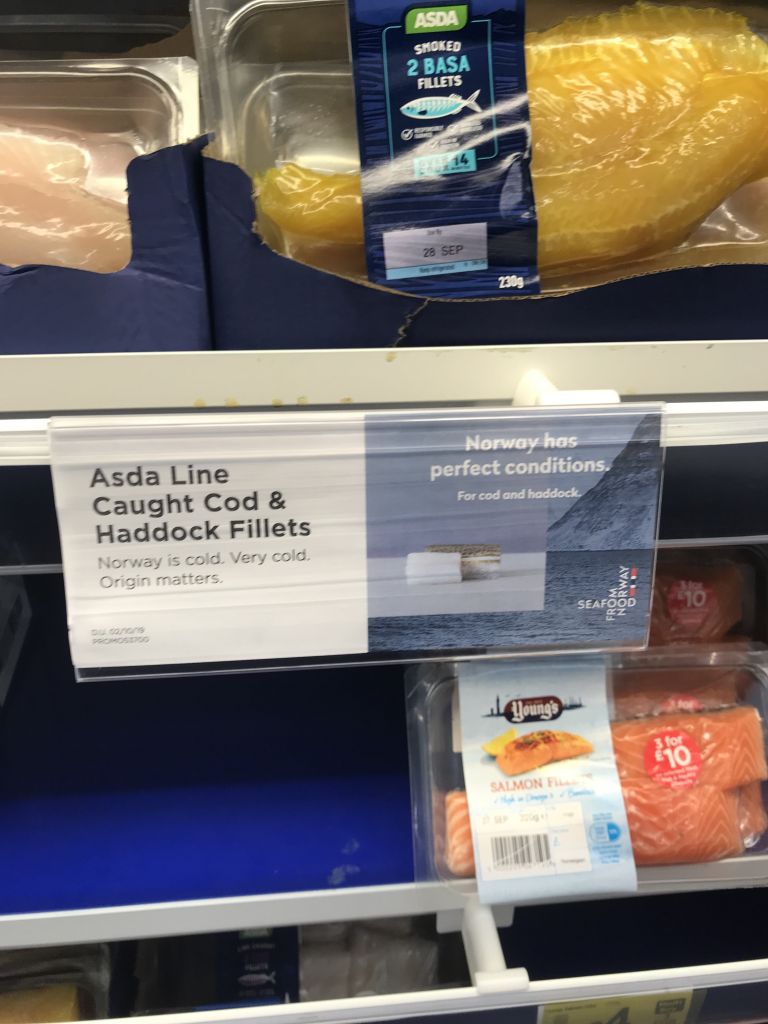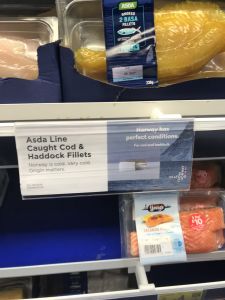Refreshing: It was extremely refreshing to read in Fish Farming Expert that the Atlantic Canada Fish Farmers Association (ACFFA) is fighting back against comments made by the Atlantic Salmon Federation (ASF). Susan Farquharson, Executive Director of ACFFA, said that comments by Neville Crabbe of ASF cannot go unchallenged.
Mr Crabbe, with reference to the transparency of reporting farm salmon escapes, said that ‘When you have spawning occurring between aquaculture escapees and wild fish, you are wiping away potentially 10,000 years of evolution in a single spawning event.’
Ms Farquharson responded by saying that salmon farmers do not want to lose a single fish. The fish are their livelihood but when escapes happen, they are usually the result of extreme weather events. Occasionally escapes are due to equipment malfunction or human error, but salmon farmers are already transparent. When escapes happen, they are reported to the authorities who then notify numerous local groups.
However, she also points out that farmed salmon are very poorly suited to survival in the wild or reproductive success. She added that fearmongering about potential evolutionary disaster after a small escape incident does a disservice to the collaborative efforts between salmon farmers and local groups.
More importantly, she points out that ASF historically has released different strains of fish into local waterways and that he conveniently ignores any potential impacts of over 100 years of salmon enhancement efforts including ASF’s own sea ranching project in the 1979s and 1980s, that saw large releases of a variety of salmon strains into rivers and estuaries.
We, at Callander McDowell applaud Susan Farquharson for her stand. We wonder who the wild salmon sector would blame for the decline of fish if there was no salmon farming industry to blame. It is interesting that the ASF, whose email address begins with SAVESALMON, lists the number of fish that anglers have killed for sport on their website. Perhaps, the ASF are so concerned about wild salmon stocks they should campaign against the killing of any returning fish instead of trying to find fault with the farming industry.
Interestingly, BBC Radio 4’s Farming Today programme ran a week-long feature on angling. One of the programmes considered the state of salmon fishing on the River Tay. https://www.bbc.co.uk/programmes/m00088lk (4 minutes in). A local ghillie told the programme that fish numbers have dropped so much that questions are being asked whether it is commercially viable to continue fishing for salmon. Dr David Summers confirms that tagging experiments show that fewer mature fish are coming back from their time at sea. He suggests that the number returning is less than 2%. He added that returning grilse are smaller and thinner than in the past and this may indicate that they are not getting enough food whilst at sea. This may be due to global warming with food species being further north than previously. When asked what can be done, Dr Summers said that this is a pan-North Atlantic problem. At the same time, he says that there have been historic highs and lows of salmon numbers and this may be just one of those. What was pleasing was that we didn’t hear any reference to salmon farms, and we could be hopeful that there is at last a realisation salmon farming is not the problem.
We were also interested to see a report from the River Tweed Commission that police and fisheries managers are joining forces to crack down on salmon poaching. The report states:
Fay Hieatt, Clerk to the River Tweed Commission said, “With the number of Atlantic Salmon returning to our rivers currently in steep decline, it is more important than ever that every fish which makes that successful migration back to its home river is given the opportunity to spawn the next generation. Salmon poaching is a serious crime and the River Tweed Commission is proud to be working with Police Scotland to offer specialist training for our local Police officers to equip them with the knowledge to identify fisheries crime.
We can only wonder whether the hope that all returning fish be given the opportunity to spawn applies only to those fish that might be illegally poached or whether it also includes all those fish that are caught legally by anglers. The Tweedbeats website reports that last week 190 salmon and 16 sea trout were caught on the Tweed bringing the season total to date to 4,345 salmon and 1.676 sea trout. We will probably have to wait until April next year to find out how many of these fish had the opportunity to spawn and ensure the future generations of fish in the river.
If numbers continue to drop in the Tweed, at least they will have poachers to blame given that there are no salmon farms for hundreds of miles!
Gone: The Guardian newspaper reports that sustainably caught North Sea cod could disappear from UK supermarkets shelves next year. This is because they claim that the loss of certification will make it harder to sell the cod to supermarkets. This follows the news that the Marine Stewardship Council are to suspend certification of North Sea cod because stocks are much lower than expected.
We, at Callander McDowell, would argue that North Sea cod disappeared from supermarket shelves a long time ago as most, if not all, cod sold by the mainstream retailers comes from Norway or Iceland. Even the Guardian acknowledge this by saying that 94% of the 115,000 tonnes of cod eaten in the UK annually is from Norwegian or Icelandic waters and remains certified by the MSC.
This is not the first time UK consumers have been warned off North Sea cod. In fact, then the message was not to eat cod at all even though supplies were never an issue.
The real problem is for UK fishermen not for consumers. The lack of certification may undermine their supply chains and hence their livelihoods. It is unclear as yet how they will respond.
The latest Scottish sea fisherie’s statistics have just been published and it is apparent that mackerel are the most valuable species for the Scottish fishing fleet accounting for 29% of the total value. Yet, this month, the MSC have said that they will not reinstate the certification for mackerel despite healthy local stocks. This suggests that presence of the MSC label doesn’t really affect sales. Certainly, our experience is that most consumers won’t even notice if the label is present or not. Our experience is also than most consumers aren’t that interested in the origin of the fish either and they simply buy what is available.
We were interested to see that Asda had perhaps pre-empted this news because for the last week or so, they have been displaying a shelf label promoting Norwegian cod and haddock. Since Asda shoppers don’t have a choice, we are mystified as to why bother? After all, there is no shopper incentive to show any interest in the cod’s origin such as money off, a competition or the like.
Having seen this label in a number of stores, we are also surprised that it is located next to the packs of pangasius rather than cod and haddock!

Finally, the Guardian suggests that as sustainable cod is now of f the menu. Consumers should try other sustainable choices. Their first alternative is sustainable cod. They do clarify that this should come from Norway and Iceland.
The other alternatives are haddock, hake, pollock or Pacific cod, all of which have the MSC blue tick certification. The inclusion of Pacific cod is interesting because it is some years since we saw any Pacific cod in UK stores because there has always been plenty of local cod available.
French low: Intrafish report that although the price of farmed salmon is at the lowest level for several years, there is concern that consumers may not be tempted to buy more. Usually, low prices result in increased demand, but French salmon buyers are not convinced that the current low prices will stimulate market demand now.
The reasons for this view are unclear but certainly Etinnne Balay from the supermarket chain Casino told Intrafish that whilst salmon prices are lower, demand has not increased.
We, at Callander McDowell, are not surprised. For several years we have watched salmon prices increase in the French retail sector with an inevitable decline in sales. This has become increasingly apparent at Christmas time as the salmon offer has become a shadow of what it used to be. We remember one industry leader dismissing the effects of a rising price with the suggestion that once prices reverse, consumers would flock back to buying salmon because the fish was so important to French consumers. We were not convinced, as our view has always been that the longer prices remain high, the less likely that consumers would rush back to buying salmon. Although, it is still early days, this may be exactly what is happening. The measure will be what happens at Christmas time and we will be making our usual trip to France to find out.
When we first started to monitor the markets, salmon was a low margin, high volume fish. Counters were a sea of pink and consumers felt confident to buy it as a value for money meal option. As prices rose, encouraged by stock exchange investors, that sea of pink receded to the point that we know fish counters in France that do not stock any salmon at all. The stores may stock some prepacks but the fish counters in one of the most important markets for salmon had no salmon offering. This was not one odd occasion, but on every visit we made over many months. It is not surprising that consumers fell out of love with salmon.
It may take more than low prices to stimulate demand for salmon because long-term price rises have inevitably caused long-term damage to the market. Those buying salmon will need to be persuaded that any effort invested in switching consumers back to salmon will not be wasted if the low price is a temporary occurrence.
We have always argued that the salmon industry needs to decide what sort of market it wants to supply rather than having to continually adapt as prices change. The French market is now evidence of such uncertain strategies.


